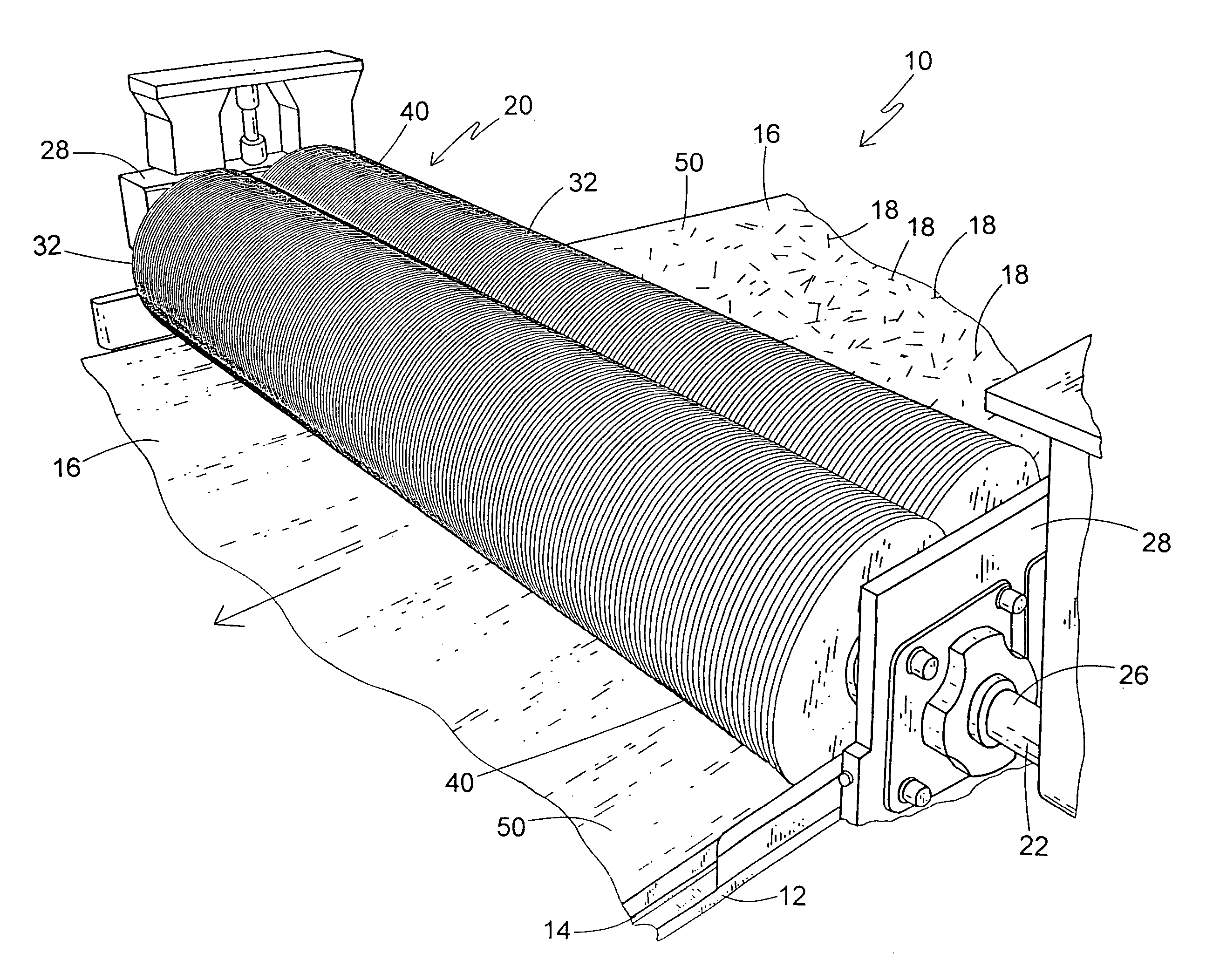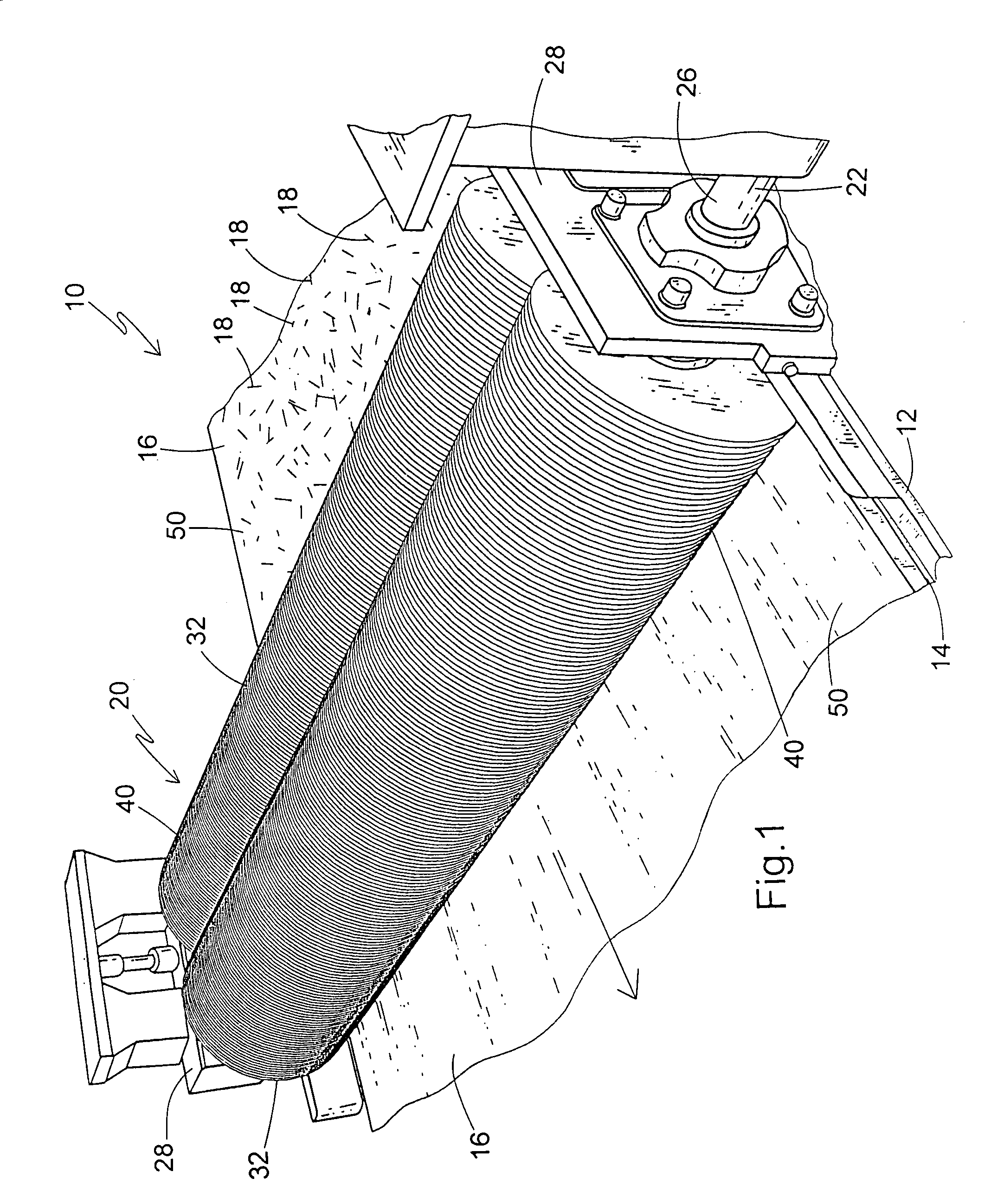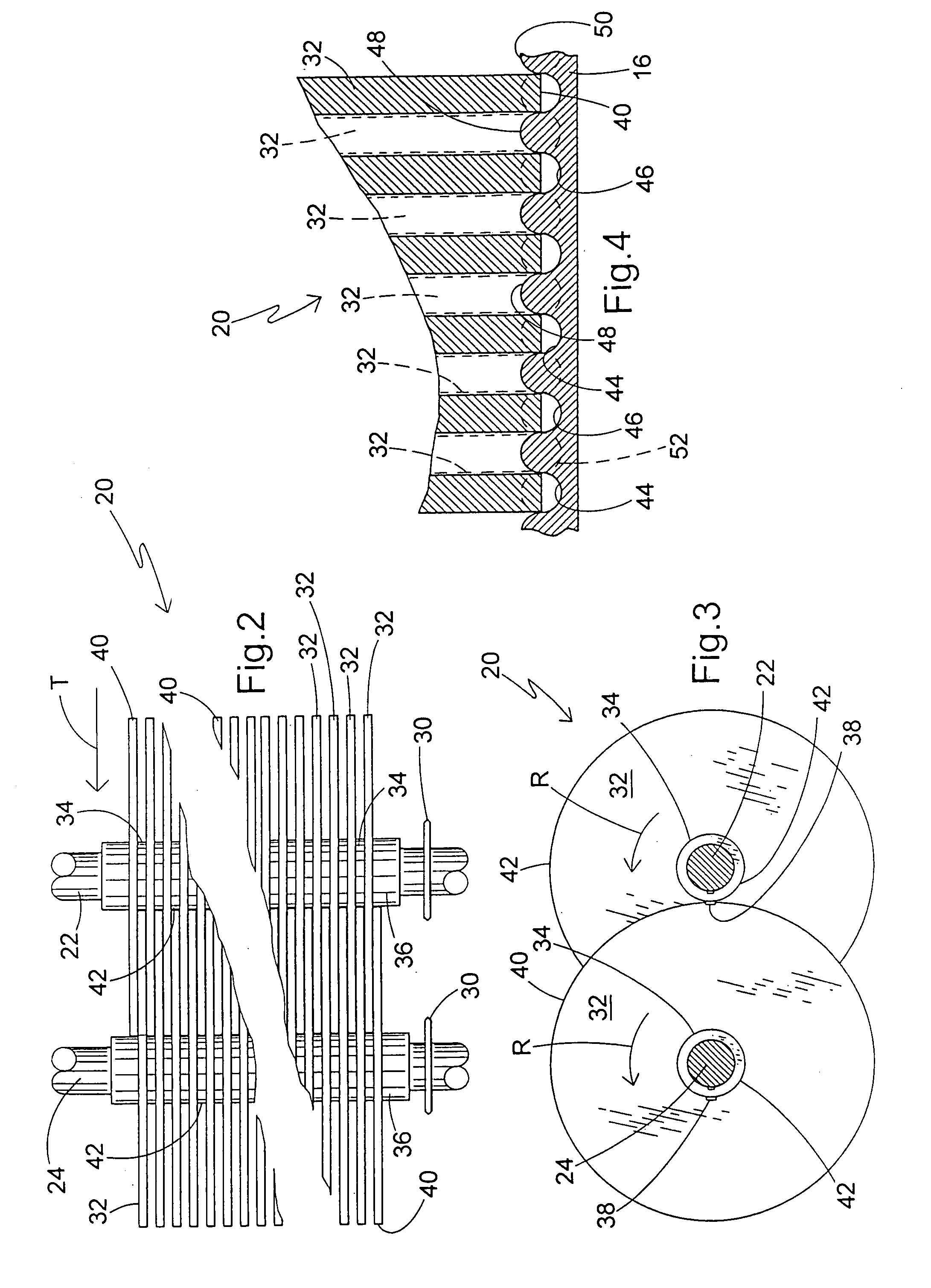Embedment device for fiber-enhanced slurry
a technology of enhanced slurry and embedding device, which is applied in the direction of butter manufacturing, turning machine accessories, drawing profiling tools, etc., can solve the problems of low panel strength, fibers applied in mats or webs, and insufficient structural strength, so as to reduce board line downtime
- Summary
- Abstract
- Description
- Claims
- Application Information
AI Technical Summary
Benefits of technology
Problems solved by technology
Method used
Image
Examples
Embodiment Construction
[0020] Referring now to FIGS. 1 and 2, a structural panel production line is fragmentarily shown and is generally designated 10. The production line 10 includes a support frame or forming table 12 which supports a moving carrier 14, such as a rubber-like conveyor belt, a web of craft paper, release paper, and / or other webs of support material designed for supporting a slurry prior to setting, as is well known in the art. The carrier 14 is moved along the support frame 12 by a combination of motors, pulleys, belts or chains and rollers (none shown) which are also well known in the art. Also, while the present invention is intended for use in producing structural cement panels, it is contemplated that it may find application in any situation in which bulk fibers are to be mixed into a settable slurry for board or panel production.
[0021] While other sequences are contemplated depending on the application, in the present invention, a layer of slurry 16 is deposited upon the moving carr...
PUM
| Property | Measurement | Unit |
|---|---|---|
| movement | aaaaa | aaaaa |
| diameter | aaaaa | aaaaa |
| thickness | aaaaa | aaaaa |
Abstract
Description
Claims
Application Information
 Login to View More
Login to View More - R&D
- Intellectual Property
- Life Sciences
- Materials
- Tech Scout
- Unparalleled Data Quality
- Higher Quality Content
- 60% Fewer Hallucinations
Browse by: Latest US Patents, China's latest patents, Technical Efficacy Thesaurus, Application Domain, Technology Topic, Popular Technical Reports.
© 2025 PatSnap. All rights reserved.Legal|Privacy policy|Modern Slavery Act Transparency Statement|Sitemap|About US| Contact US: help@patsnap.com



